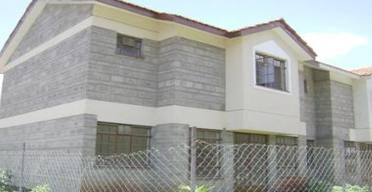NAIROBI, August 27 – When shopping for mortgage alternatives, most homebuyers usually consider the property’s sale value and the interests charged by the institutions.
While these may be the most crucial factors, many people are ignorant of the other fees that accompany the process of acquiring a mortgage.
For such people, here is an eye-opener.
In addition to interest rates which average about 20 percent, a prospective buyer is also expected to place a down payment of between 20-40 percent of the property’s value, as well as significant legal and valuation fees.
Mortgage financiers require evidence of credit worthiness such as a detailed employment history, and some form of collateral, usually the land or property being purchased.
Once the mortgage application has been approved, it is important to go through the letter of offer given by the mortgage provider.
A borrower will be required to first part with a commitment fee normally of between 0.5% and 3% (depending on the financier) of the total loan value.
According to Chris Chege, the Senior Relationship Manager-mortgage sales at Housing Finance, the commitment fee is required to underscore ones commitment to the deal.
During the process of acquiring a mortgage, the borrower is also required to conduct a valuation of the property. Valuation is the price at which one would expect a property to change hands in a situation of a willing buyer and seller and no external factors coming into play. Normally mortgage providers will require potential home buyers to attach a valuation form with the rest of the application. “This ensures confirmation of land; that the property is indeed seated on the right piece of land,” Chege says.
A valuation certificate is also considered as proof that the said property conforms to all the required procedures such as city by-laws.
A home buyer will therefore be needed to pay a valuation fee to a property valuer, charged under a stipulated scale and will purely depend on the value of return. The charges are regulated under Cap 532 of the Laws of Kenya meaning that a valuer should not overprice his services.
Since no ownership of property is transferred without legal documents such as the sale, transfer and charge documents, homebuyers would be advised to hire the services of a lawyer for the tedious process especially in getting the necessary documents from the Land’s office. Similar to valuation, legal fees are also pegged on a scale.
Homebuyers will also be required to pay stamp duty to the government. Depending on where the property is located, a stamp duty of between 2 and 4 percent is payable to properties located in rural and urban areas respectively.
Most mortgages will come with an insurance requirement, which means the principle or borrower will need to take a cover against death and the property against fire. Chege notes that though it is a minimal cost to many borrowers, it is recommended that anyone who takes a mortgage is covered in advance. Sometimes this means you are required to pay a full year’s worth at time of purchase, or it will be rolled into your monthly payment.
He further notes that that the monthly repayments could be classified as fees as much as this remained the core of any mortgage. “This is more of a deposit to further own the property than a charge,” he adds. It is repayable until redemption of the property is as per the contract agreement as specified in the letter of offer.
Monthly repayments are composed of three components; capital, interest and charges such as the insurance premiums.
In general, borrowers are urged to understand the whole mortgage deal before signing it as most prospective homeowners are messed by failure to read all the clauses. “It is a criminal offence to breach such a contract,” Mr Chege warns.
In the past few years, various commercial banks have developed mortgage products to compete with mortgage providers like Housing Finance and Savings and Loans (a subsidiary of Kenya Commercial Bank).




































